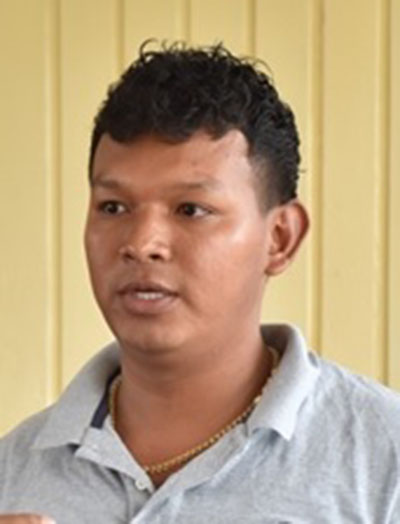Fearing the possible spread of the novel coronavirus disease (COVID-19) in their community, the Toshao and residents of the indigenous village of Chinese Landing, in Region One, have called for de facto Minister of Public Health Volda Lawrence to put a halt to mining activities there.
The community, which is located in the Moruca, Sub-District, has been unable to stop the movement of outsiders due to mining being regarded as an essential service.
In a letter sent to Lawrence and seen by this newspaper, the residents have called for an urgent intervention. In the letter, Toshao Orin Fernandes said that mining activities are being carried out on titled land in the village without any permission from the village council. The miners are operating from the permission granted by an individual who claims he has jurisdiction over the land. The community has been in a longstanding dispute with the individual.
“We look helpless[ly] every day at people coming into our village, setting up shops and working dredges and pumps. Since our village has no gates and is open, people from all walks of life continue to pour into our village at various points,” Fernandes wrote.
Against this background, he said residents feel threatened since they have no medical personnel to administer emergency care.
“We have observed that even children and entire families are in the mining operations area despite the village council[’s] request… for them not to enter our village and leave but our requests are being ignored,” Fernandes noted, before adding that he believes that the risk of someone in the village contracting COVID-19 is relatively high due to the free movement.
“On behalf of my people, I most urgently seek your immediate intervention into this situation,” he concluded.
The updated emergency measures instituted by government include a proviso that stipulates that where a Village Council has determined that a public health threat exists in relation to any mining or forestry operation carried out as an essential service, it can recommend to the minister that the operation be discontinued.
During an online discussion hosted last Friday by the Amerindian People’s Association’s (APA), Michael McGarrell, the organisation’s Geographic Information System specialist and Forest Policy Officer, warned that Guyana’s Indigenous communities are at risk of potentially devastating consequences if COVID-19 makes its way into any one of them.
He cited communities’ limited access to medical supplies and care as being among the main factors that will contribute to the decimation.
He noted that indigenous communities do not have the medical resourc-es, such as personal protective equipment (PPE) or equipment like ventilators to respond to a potential outbreak. While saying it is admirable that local leaders are doing what they can to protect people, he observed that many communities remain vulnerable due to mining and logging activities. “There is still a high volume of persons traveling and engaging in social activities that will not go hand in hand to social distancing…therefore, it must be reconsidered as to how we approach this, what measures need to be in place. Some communities have some screening but there is only so much we can do as communities. [We have to get inputs] to come from a policy level and this is how we can do it, the government can do to help us or we can be decimated,” McGarrell said.





